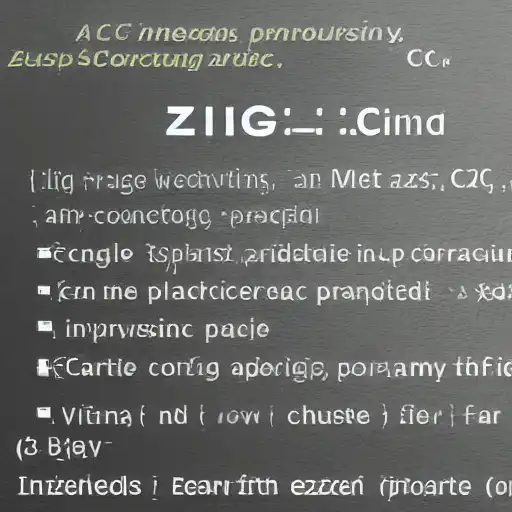
September 26th, 2023
Welcome to the twenty-fifth installment of our exploration of advanced topics in Zig. In this installment, we have the freedom to choose an advanced topic to delve into, and today, we'll focus on Zig and Game Development.
Zig and Game Development
Game development is a fascinating and complex field that demands a combination of performance, creativity, and technical skill. Zig, with its focus on performance, low-level control, and modern features, is well-suited for game development. In this article, we'll explore how Zig can be used in game development and highlight some of the key aspects:
Performance and Efficiency
Game development often requires squeezing every bit of performance out of hardware to achieve smooth gameplay and stunning visuals. Zig's emphasis on performance and low-level control makes it a strong candidate for writing game engines and high-performance game code.
- Efficient Memory Management: Zig allows you to control memory allocation and deallocation directly, which is crucial for minimizing memory overhead and reducing garbage collection pauses.
- Inline Assembly: When optimizing critical sections of code, you can use inline assembly to write highly optimized CPU-specific instructions.
Cross-Platform Support
Games are typically developed for multiple platforms, including Windows, macOS, Linux, consoles, and mobile devices. Zig's cross-platform support and ability to target various operating systems and architectures simplify the process of creating games that can run on different platforms.
- OpenGL and Vulkan Bindings: Zig provides libraries and bindings for graphics APIs like OpenGL and Vulkan, enabling you to create cross-platform graphics code.
Game Engine Development
Zig is a versatile language for developing game engines. You can build your game engine from scratch or use existing libraries and tools. Some Zig projects, like the "ZigFu" game engine, have started exploring game engine development in Zig.
- Entity-Component Systems (ECS): ECS architecture is commonly used in modern game engines, and Zig's flexibility allows you to implement ECS systems tailored to your game's needs.
- Parallelism and Concurrency: Zig's support for concurrency and multithreading is essential for game engines that need to efficiently manage tasks like physics simulation and rendering in parallel.
Asset Pipelines and Tooling
Game development involves managing various assets, including 3D models, textures, audio, and more. While Zig is primarily a systems programming language, it can be integrated with asset pipelines and external tools to streamline asset management.
- Build Systems: Zig's build system can be extended to automate asset processing and integration into the game.
- Custom Tools: Zig can be used to create custom tools for game development tasks like level design, asset conversion, and data serialization.
Community and Libraries
While Zig is a relatively new language, it has a growing and enthusiastic community. Some members of the community are passionate about game development and have created libraries and tools to support game development efforts in Zig.
- Community-Driven Projects: Keep an eye on community projects and libraries, as they may provide valuable resources for your game development projects.
Learning and Resources
To get started with game development in Zig, you can explore resources such as tutorials, documentation, and existing game development projects in Zig. The Zig community is supportive and often willing to help newcomers.
Conclusion
Game development in Zig is an exciting and promising field. While Zig is still evolving, its performance-focused design and growing ecosystem of libraries and tools make it a compelling choice for game developers looking for a new and powerful language to create innovative and performant games. Whether you're building a game engine from scratch or working on game logic, Zig provides the tools and flexibility you need to bring your game ideas to life.
Thank you for joining us in this exploration of Zig and game development. We hope this installment has inspired you to consider Zig as a viable language for your game development projects. Happy coding, and may your Zig-powered games be a source of entertainment and inspiration!